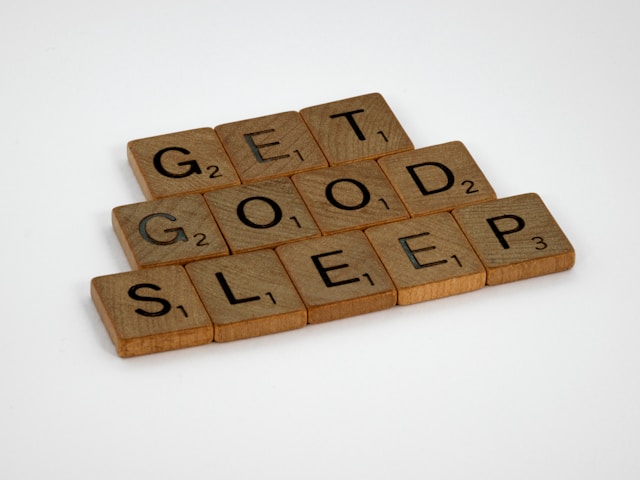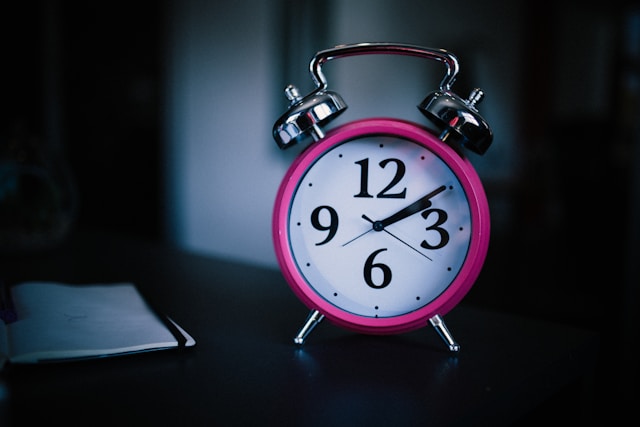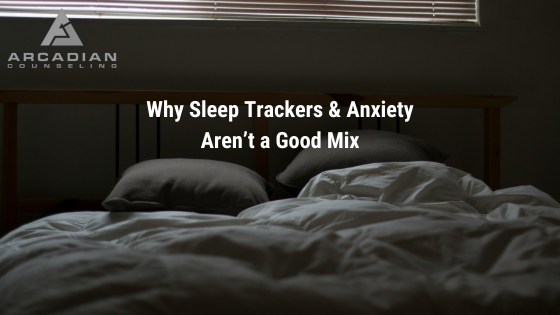The quest for better sleep has led many to embrace technology, including sleep trackers. These devices promise insights into our sleep patterns, offering data to optimize our rest. However, for those prone to overthinking and anxiety, the combination of sleep trackers and anxiety can be precarious if not managed properly. While sleep trackers can be beneficial tools for some, they can also exacerbate anxiety for others, leading to a cycle of worry and sleep disturbances.
At first glance, sleep trackers seem like a genius idea for those seeking to improve their sleep quality. They offer detailed metrics on sleep duration, efficiency, and stages. With this information, users are able to make informed decisions to enhance their sleep hygiene. However, for folks predisposed to anxiety, instant and constant access to this type of information can become sources of obsession and stress.
sleep trackers and anxiety

One of the primary issues with sleep trackers is their tendency to foster hyperawareness of sleep-related behaviors. Constantly monitoring sleep metrics can lead to heightened self-consciousness about bedtime routines and habits. This hyperfocus can escalate into anxiety-inducing thoughts such as “Am I sleeping enough?” or “Why am I not achieving deep sleep?” Such concerns can spiral into a cycle of rumination, making it even harder to relax and fall asleep.
Additionally, the accuracy of sleep trackers can sometimes be questionable. While these devices have become increasingly sophisticated, they are far from perfect. Variability in algorithms, sensor limitations, and individual differences in sleep architecture can lead to discrepancies between the tracker’s data and actual sleep experience.
If you’re prone to anxiety, these discrepancies can fuel doubts and mistrust in the device, which could further exacerbate stress and disturbances in sleep.
Another concern with sleep trackers and anxiety is the potential for sleep trackers to reinforce unhealthy sleep-related behaviors. Some people get fixated on meeting certain sleep goals, which could lead to sacrificing relaxation and flexibility in their bedtime routines. This type of rigid adherence to sleep metrics can disrupt natural sleep patterns and perpetuate a cycle of stress and sleeplessness.

Lastly, the constant monitoring of sleep metrics can disrupt the wind-down process before bedtime. Instead of engaging in relaxing activities to prepare for sleep, individuals may find themselves preoccupied with checking their sleep tracker or interpreting its data. This preoccupation with sleep metrics can interfere with the natural transition to sleep, further fueling anxiety and sleep disturbances.
In addition to fostering anxiety about sleep, sleep trackers can also contribute to broader mental health concerns. For individuals already grappling with anxiety disorders, the added stress of monitoring sleep metrics can exacerbate symptoms and impair overall well-being. Sleep disturbances are commonly associated with anxiety disorders, and the relentless focus on sleep data can amplify existing worries about sleep quality, leading to a vicious cycle of anxiety and sleep deprivation.

How to prevent any negative impacts on anxiety when using sleep trackers
It’s essential to approach sleep tracking with mindfulness and moderation. Rather than fixating on achieving perfect sleep metrics, focus on cultivating healthy sleep habits and listening to your body’s signals. Additionally, consider taking breaks from using the sleep tracker periodically to reduce reliance and alleviate anxiety.
It’s a good idea to recognize that sleep trackers are just one tool in the quest for better sleep. They provide insights, but they should not dictate your entire sleep experience. If using a sleep tracker exacerbates anxiety or disrupts sleep, it’s probably a good idea to stop using them. Or at the very least, take a break for a while and do a little comparison.
James Killian, LPC is the Principal Therapist & Owner of Arcadian Counseling in Greater New Haven, CT where they specialize in helping over-thinkers, high achievers, and perfectionists reduce stress, increase fulfillment and enhance performance so they can move From Surviving To Thriving.

